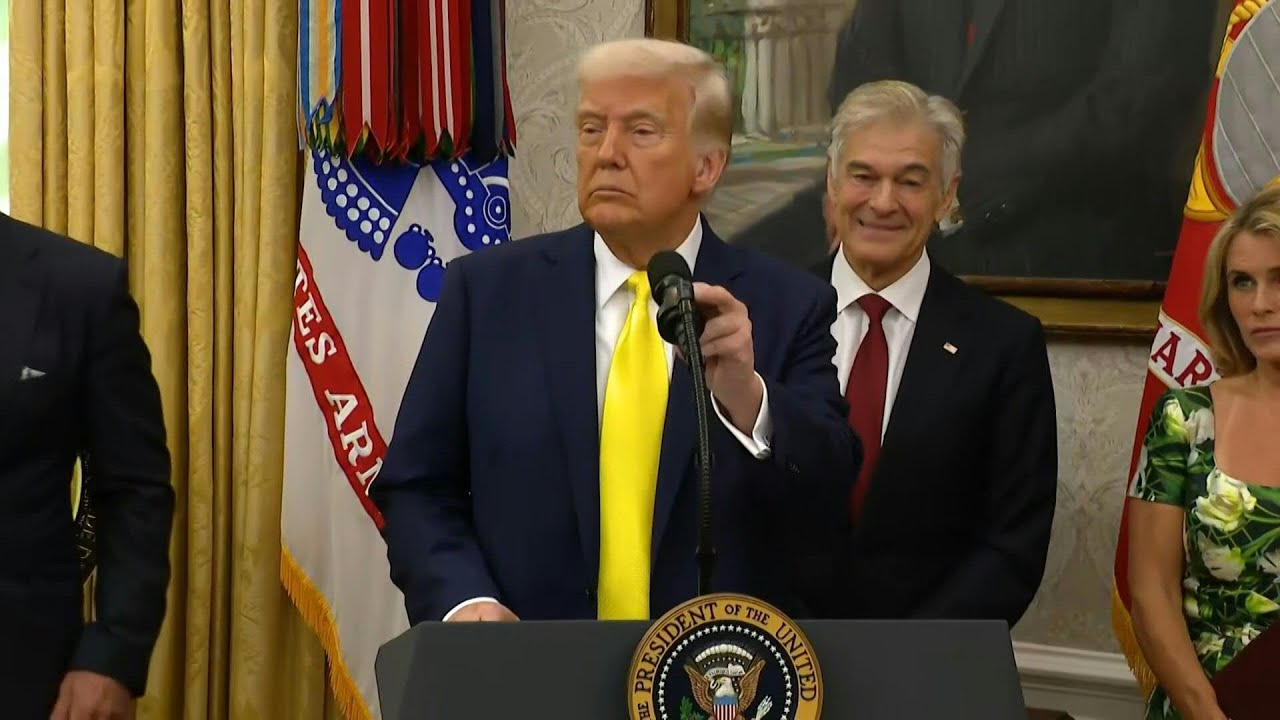Explore how Trump’s recent signals on a Ukraine deal could reshape U.S. foreign policy. Discover the implications and potential turning points in global relations.
Introduction
In recent statements, former President Donald Trump has indicated that the United States may take decisive action regarding its involvement in Ukraine if a satisfactory deal is not reached soon. This declaration has sparked significant discussion among policymakers, analysts, and the public about the implications for U.S. foreign policy and the ongoing conflict in Ukraine. As tensions continue to rise, the stakes have never been higher for both the U.S. and Ukraine.
The Context of Trump’s Statement
Trump’s comments come against the backdrop of a protracted conflict in Ukraine, which has seen ongoing military aggression from Russia since 2014. The U.S. has played a pivotal role in supporting Ukraine through military aid, economic sanctions against Russia, and diplomatic efforts aimed at resolving the conflict. However, as the situation evolves, questions about the sustainability of U.S. support have emerged, particularly with the shifting political landscape in Washington.
The Implications of “Moving On”

When Trump mentions that the U.S. will “move on very shortly,” it raises several critical questions. What does this mean for U.S. support for Ukraine? How would this shift impact the Ukrainian government and its military capabilities? Furthermore, what would be the broader implications for global security, particularly in Europe?
- U.S. Support for Ukraine: Historically, U.S. support has been contingent on various factors, including domestic political considerations and international dynamics. Trump’s statement suggests a potential reevaluation of this support, which could lead to a reduction in military aid and diplomatic backing for Ukraine.
- Impact on Ukraine: A decrease in U.S. support could have dire consequences for Ukraine, which relies heavily on American military assistance to fend off Russian aggression. Without this support, Ukraine may struggle to maintain its defense capabilities, making it vulnerable to further incursions.
- Global Security Concerns: The implications of the U.S. stepping back from its commitment to Ukraine extend beyond the region. Such a move could embolden Russia, sending a message that aggressive actions may go unpunished. This could lead to increased instability in Eastern Europe and potentially encourage other authoritarian regimes to assert their power more aggressively.
The Political Landscape
Trump’s remarks also reflect the current political climate in the U.S., where foreign policy is often influenced by domestic priorities. With the 2024 presidential election approaching, candidates are increasingly focused on issues that resonate with their voter bases. For Trump, advocating for a more isolationist approach could appeal to segments of the electorate that prioritize domestic issues over international engagements.
Reactions from Political Leaders

The reaction to Trump’s statement has been mixed among political leaders. Some Republicans support a reassessment of U.S. involvement in Ukraine, arguing that American resources should be focused on domestic concerns. Conversely, many Democrats and some Republicans express alarm at the prospect of reduced support for Ukraine, emphasizing the importance of standing firm against Russian aggression.
The Role of NATO and International Allies

As the U.S. contemplates its next steps, the role of NATO and international allies becomes increasingly significant. European nations have been vocal in their support for Ukraine and may be compelled to step up their contributions if the U.S. reduces its involvement. However, this could also lead to tensions within NATO, as member countries grapple with differing priorities and strategies regarding the conflict.
Public Sentiment
Public opinion on U.S. involvement in Ukraine is complex and evolving. While there is significant support for aiding Ukraine, there is also a growing sentiment among some Americans that the U.S. should focus on domestic issues, particularly in light of economic challenges. This dichotomy presents a challenge for policymakers who must balance international commitments with the expectations of their constituents.
Conclusion
Trump’s assertion that the U.S. will “move on very shortly” if a deal is not reached regarding Ukraine serves as a catalyst for a broader discussion about U.S. foreign policy. As the situation unfolds, the implications of this stance will be felt not only in Ukraine but also across the globe. The need for a cohesive and strategic approach to international relations has never been more pressing, as the world watches closely to see how the U.S. will navigate this pivotal moment.

